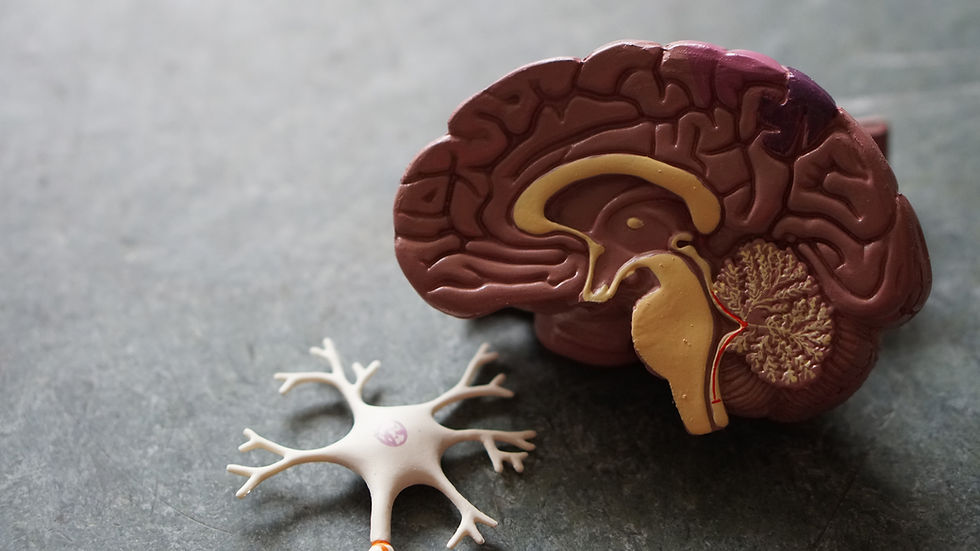Dopamine and the Habit of Drinking Alcohol
- Marie Helene M

- Oct 25, 2023
- 2 min read
Updated: Nov 20, 2023
When you drink alcohol, it affects your brain, including the release of dopamine, a neurotransmitter associated with pleasure and reward. But when you drink often, there is more impact on the brain that will reinforce the desire to drink alcohol but decrease the joy of drinking, ironically!

Here's a simple explanation of what happens:
1. Initial Effects: When you start drinking, alcohol enters your bloodstream and travels to your brain. It depresses the central nervous system, leading to a sense of relaxation and lowered inhibitions. This initial effect is what many people refer to as feeling "buzzed" or "tipsy."
2. Dopamine Release: Alcohol consumption triggers the release of dopamine in certain parts of the brain, particularly in the brain's reward pathway. This release of dopamine contributes to the pleasurable feelings you experience while drinking. It's one of the reasons people find drinking enjoyable.
3. Dopamine Overload: As you continue to drink, especially in larger amounts or over an extended period, your brain may release an excessive amount of dopamine. This can lead to an intensified sense of pleasure and euphoria. However, it's important to note that this excessive dopamine release can also be a factor in addiction because it reinforces the desire to repeat the behaviour (in this case, drinking).
4. Tolerance: With repeated alcohol use, your brain can become less sensitive to the effects of dopamine, which means you may need to drink more to achieve the same pleasurable sensation. This is known as developing tolerance.
5. Withdrawal and Craving: When the effects of alcohol wear off, you may experience a drop in dopamine levels, leading to feelings of discomfort, anxiety, and cravings for more alcohol. This is part of what can make quitting or cutting down on alcohol challenging for some people.
6. Long-Term Effects: Chronic alcohol use can lead to changes in the brain's structure and function, which can contribute to addiction and other negative health consequences. It can also disrupt the balance of other neurotransmitters, affecting mood, cognition, and behaviour.
In summary, when you drink alcohol, it initially boosts dopamine levels in your brain, contributing to feelings of pleasure and relaxation. But the long-term effects of alcohol on the brain, including changes in dopamine sensitivity, can have significant implications for addiction and overall brain health. And here, we are not addressing the impact on memory, mental health, and physical health.
However, to understand alcohol addiction, neuroscience and a glimpse of how alcohol affects the brain may be an interesting way to understand why we want to drink what is literally slowly killing us and quickly making us feel miserable.





